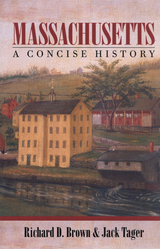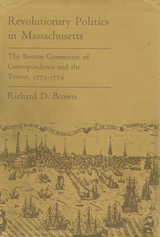
In 1806 an anxious crowd of thousands descended upon Lenox, Massachusetts, for the public hanging of Ephraim Wheeler, condemned for the rape of his thirteen-year-old daughter, Betsy. Not all witnesses believed justice had triumphed. The death penalty had become controversial; no one had been executed for rape in Massachusetts in more than a quarter century. Wheeler maintained his innocence. Over one hundred local citizens petitioned for his pardon--including, most remarkably, Betsy and her mother.
Impoverished, illiterate, a failed farmer who married into a mixed-race family and clashed routinely with his wife, Wheeler existed on the margins of society. Using the trial report to reconstruct the tragic crime and drawing on Wheeler's jailhouse autobiography to unravel his troubled family history, Irene Quenzler Brown and Richard D. Brown illuminate a rarely seen slice of early America. They imaginatively and sensitively explore issues of family violence, poverty, gender, race and class, religion, and capital punishment, revealing similarities between death penalty politics in America today and two hundred years ago.
Beautifully crafted, engagingly written, this unforgettable story probes deeply held beliefs about morality and about the nature of justice.


More than a century and a half ago, John Adams urged scholars investigate the communications of the Boston Committee of Correspondence, the most radical and important of the revolutionary committees of correspondence. Such a study, Adams suggested, would reveal the underlying impetus of the revolutionary movement. Now, for the first time, Richard D. Brown has made an exhaustive and systematic analysis of the committee that set a pattern for America and for the world by keeping alive the revolutionary spirit at a time when the issues were cloudy and public interest was dormant.
The Boston committee, organized to arouse the people of Massachusetts and to inform them of their rights, initiated the use of local committees of correspondence and went on to become a major revolutionary institution which helped bring about fundamental changes in Massachusetts politics. Mr. Brown's book focuses on the years 1772 to 1774, when the inhabitants of Massachusetts moved from quiet accommodation with the British imperial system to massive rebellion against it. His investigations of the records of the Boston committee and of voluminous town records never before studied have resulted in a revision of previous interpretations regarding the interaction between leaders in Boston and the people in the towns.
The author's findings indicate that the Boston committee did not control Massachusetts political action, manipulating the political behavior of the towns, as earlier theorists have suggested. Though Boston was a leader, the towns generally acted independently, and government by consent developed effectively on the local level. The letters which passed between the capital and the countryside reveal an expanding political consciousness and an ever-increasing political sophistication at the grass-roots level. They articulate an essentially radical view of politics based on popular sovereignty.
As an account of the process of political integration among a colonial people engaged in an independence movement, this book will appeal not only to historians but also to political scientists concerned with the emerging nations of the twentieth century.
READERS
Browse our collection.
PUBLISHERS
See BiblioVault's publisher services.
STUDENT SERVICES
Files for college accessibility offices.
UChicago Accessibility Resources
home | accessibility | search | about | contact us
BiblioVault ® 2001 - 2024
The University of Chicago Press









